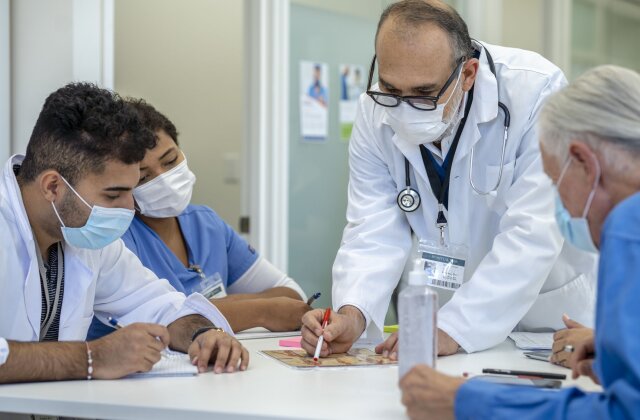What is The OMSAS ABS and Why Does It Matter?
The ABS (Autobiographical Sketch) entries are an essential part of OMSAS, the medical school application portal used for the six medical schools in Ontario (University of Toronto, McMaster University, University of Western Ontario, Queen’s University, University of Ottawa, and the Northern Ontario School of Medicine).
It allows applicants to showcase their experiences, achievements, skills, and personal and professional growth beyond their academic accomplishments. In essence, the purpose of the ABS is to provide admissions committees with insight into an applicant’s character, potential, and suitability as a future medical student.
The OMSAS ABS has 32 slots, with each entry requiring an activity description, the duration of the activity, the location of the activity, and the name and contact information of a verifier who, if contacted by the admissions committees, can verify that the information provided by the applicant is accurate.
The activity description should be concise (given the limit of 150 characters for each description) but detailed, highlighting the applicant’s responsibilities and contributions. The activity duration should specify the period of time spent on the activity, demonstrating the applicant’s commitment and consistency. Finally, verifiers are crucial as they are the ones who ultimately confirm and validate the applicant’s involvement and achievements.
The ABS holds significant weight in the OMSAS admissions process as it is the component of the application that provides admissions committees with a comprehensive picture of an applicant’s non-academic pursuits, including extracurricular activities, employment, research, cultural experiences, and even hobbies.
It provides admissions committees with holistic insight into an applicant, including their dedication, leadership skills, interest in medicine, and ability to manage multiple commitments. Given the importance of the ABS to medical school admissions committees, it is important that applicants carefully craft their ABS entries to highlight their achievements, skills, and values, and to demonstrate their suitability for medical school.
Click to see hundreds of consultants who can mentor you:
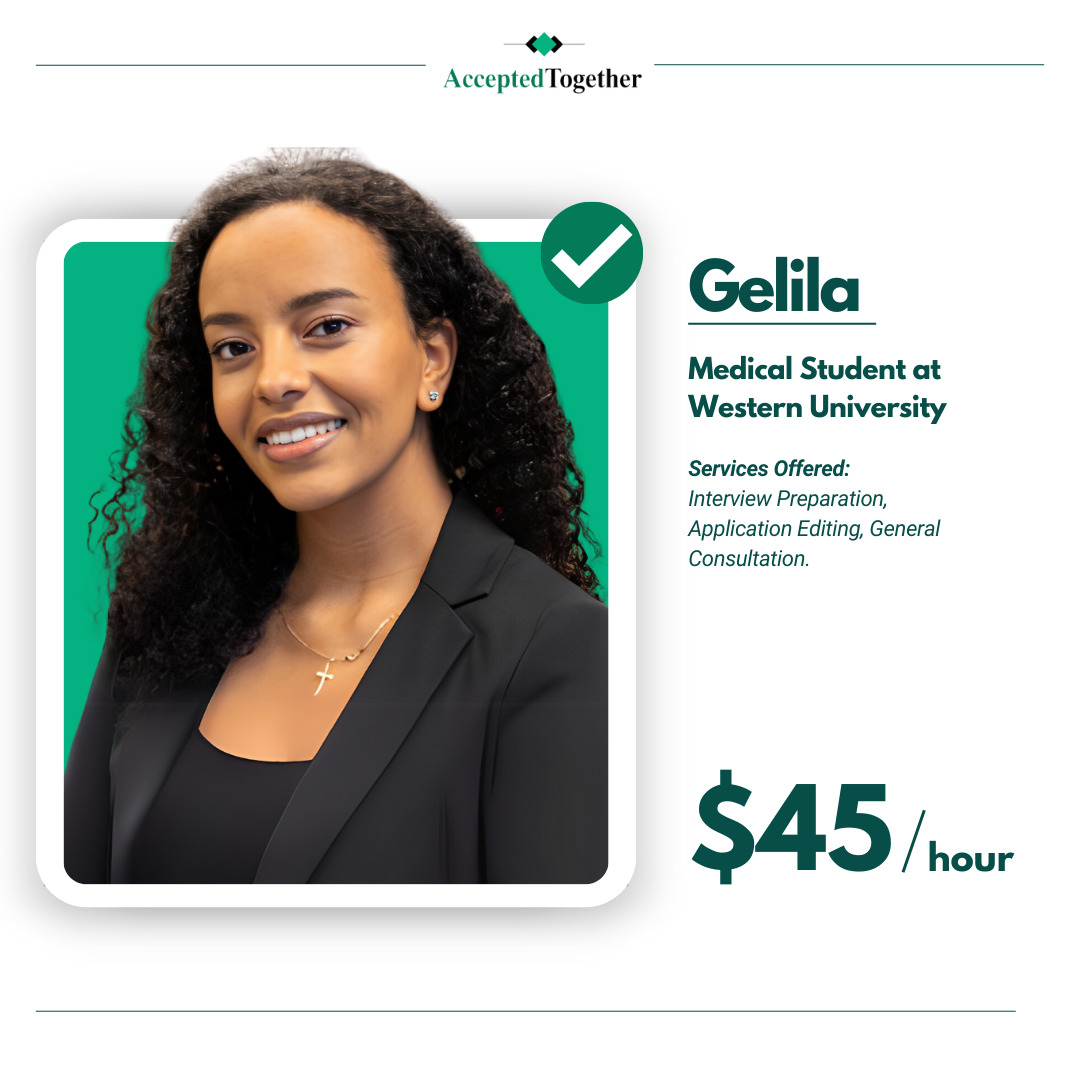
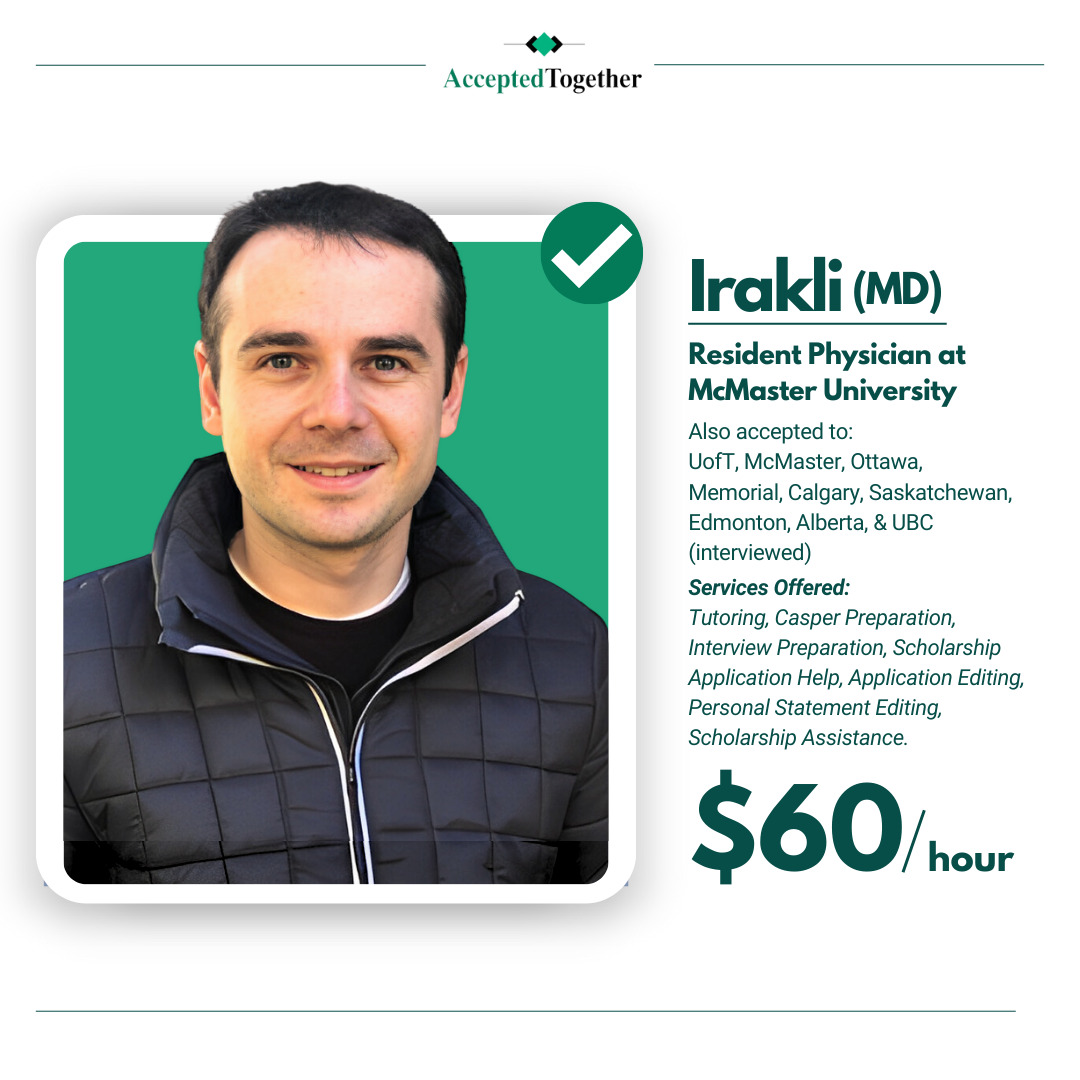
Deciding Which Experiences to Include In Your OMSAS ABS

Deciding which experiences to include in your OMSAS ABS can be a challenging and time-consuming part of the medical school application process, but it’s a vital first step to writing an impressive ABS. With a limited number of slots available to convey your potential as a future medical student, it is essential to carefully select the activities that best showcase your skills, experiences, and essential qualities.
Types of Experiences
When it comes to writing your OMSAS ABS, it is crucial to include a variety of experiences that demonstrate different aspects of your personality and skills, providing the admissions committees with a picture of you as a well-rounded applicant and future medical student. The OMSAS ABS provides you with six categories to sort your entries into: employment, volunteer activities, extracurricular activities, awards and accomplishments, research, and other.
To present yourself as a well-rounded applicant, it is essential to include experiences from all six categories. This will paint a comprehensive picture of you as a person, proving that you are not solely focused on one area but instead have a diverse set of interests and talents.
Knowing What Admissions Committees Look For
An essential trick to crafting a strong OMSAS ABS is putting yourself into the shoes of the medical school admissions committees and anticipating what they are looking for. A helpful framework for understanding what admissions committees are looking for is the CanMEDS framework. CanMEDS highlights the essential competencies a physician should possess, including being a communicator, collaborator, leader, professional, scholar, health advocate, and medical expert.
Structuring your OMSAS ABS activities around these categories by ensuring that you provide several examples for each category and prioritizing activities that demonstrate your aptitude in several categories will go a long way in making your ABS stand out to admissions committees.
It is also important to keep in mind that admissions committees are not simply looking for roborts interested in medicine. They are seeking well-rounded and unique applicants who bring diverse experiences, skills, and perspectives to the medical field. Highlighting unique experiences, including informal activities such as hobbies or cultural experiences, will strengthen your application by showcasing your individuality and adding extra depth and authenticity to your application, even if these activities do not highlight all of the CanMEDS categories.
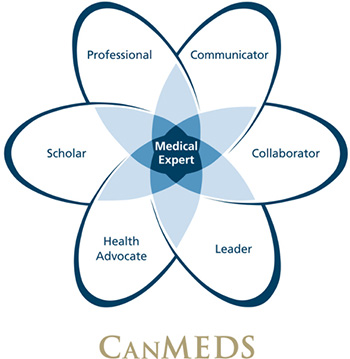
Source: Royal College
Quality Over Quantity
When it comes to crafting a compelling OMSAS ABS for your medical school application, quality should always be prioritized over quantity. While it may be tempting to fill in all 32 slots, it is important to remember that admission committees are more interested in the depth and impact of your experiences, rather than the sheer number of activities you list. Imagine being the reviewer and having to read through many activities that don’t really matter – you will be angry with the student!
Instead of aiming for a long list of activities, focus on selecting a few that truly showcase your personal growth, professional development, and suitability for medicine. Avoid including filler activities or those in which you played a minimal role, as they can weaken your application instead of adding to it. Instead, focus on showcasing a few impactful and meaningful experiences that truly highlight your essential qualities and skills as a prospective medical student, and be sure that you can provide details on why each experience is significant.
It is also crucial to strike a balance between structured and non-structured activities. While formal organizations and high-ranking verifiers can add credibility to your application, don’t underestimate the value of non-structured activities such as volunteering or participating in recreational or cultural experiences. These can highlight your ability to take initiative and engage meaningfully with your community.
Writing About Your Experiences
Once you’ve selected the experiences you want to include in your OMSAS ABS, the next (and often most time-consuming) step is writing about these experiences effectively, in order to clearly and concisely demonstrate to admissions committees what you did during these activites, the skills you demonstrated and gained, what you learned, and how these experiences have made you a better future medical student.
What You Did
When writing about your OMSAS ABS entries, it is crucial to focus on what your individual actions and contributions to the activity were. The admissions committees will not be able to appreciate what you learned from the experience, or how you demonstrated the CanMEDS qualities, if they do not first understand what you actually did.
Be specific and concise when describing what you did and the skills you used, avoiding vague, flowery language and instead using direct, precise language to highlight your actions. Remember that you have a strict character limit, so prioritize important details and avoid unnecessary fluff. For each activity, clearly describe your responsibilities, tasks, and the skills you exhibited.
Focus on how you contributed to the organization or project and the specific ways that you made a difference. Use the active voice to convey a sense of action and highlight your personal involvement. Point form is acceptable as long as your writing remains easily comprehensible. Quantitative metrics of success, when available to you, can be incredibly beneficial as well, as they are a credible and concrete way to describe your contributions.
What You Learned
Once you’ve clearly described what you did during the activity, it is important to highlight the lessons, insights, and skills you gained from the experience. This is only if you have the space for it!
Ideally, admissions committees want to understand not just what you did, but also how these activities shaped your personal growth, professional development, and understanding of the medical field. Reflecting on these experiences allows you to showcase the valuable skills and qualities you acquired. By articulating the impact they had on your character, you provide a deeper understanding of how you have grown and developed.
For example, participation in a medical outreach program may have taught you the importance of altruism and the impact of providing care to underserved communities. This experience could have shaped your understanding of the healthcare disparities that exist and fostered a deeper empathy for others. Similarly, engaging in research may have taught you the value of critical thinking, attention to detail, and perseverance. These skills are invaluable in the medical field and have undoubtedly influenced your professional development.
Using the CanMEDS Framework
When it comes to writing your OMSAS ABS entries, using the CanMEDS Framework is an effective way to showcase important qualities that admission committees are looking for. While it’s not necessary to explicitly state the CanMEDS roles in every aspect of your application (and is usually frowned upon), it is important to demonstrate these qualities through your descriptions of your activities. Instead of using the CanMEDS categories as buzzwords in every ABS entry, focus on ensuring that your descriptions of what you did and learned clearly reflect the CanMEDS categories. Remember, it’s better to show rather than tell.
From our experience, the word “collaborated” is the most overused word in the OMSAS ABS. The overuse of CanMEDS categories as buzzwords can make your ABS seem superficial and shallow, but using specific examples to illustrate how you demonstrated the qualities outlined in the CanMEDS framework will help you create a more compelling and authentic application.
Finding Verifiers

Verifiers are a key component of the OMSAS ABS; ultimately, none of what you write matters if you cannot find someone to verify the truth of what you’ve written. It is important to take the time to identify suitable verifiers, provide clear directions, and allow them sufficient time to agree to be a verifier and provide you with their contact information. With these strategies in place, you increase your chances of impressing admission committees and standing out among thousands of other applicants.
Selecting Verifiers
When it comes to selecting verifiers for your OMSAS ABS, it’s important to choose reliable individuals who can attest to the accuracy of the information you’ve provided in your activity description. Verifiers can be supervisors or coaches for structured activities, such as a research project or a volunteer position. While classmates or neighbours can verify your non-structured activities, like hobbies or creative experiences, it’s also possible to ask supervisors to verify non-structured activities if they are aware of them (e.g. they know you are an avid swimmer). This is likely to be safer since you want to limit the number of friends verifying your OMSAS ABS activities.
Finding trustworthy verifiers is crucial, as medical schools may reach out to them to verify your participation. These verifiers should be able to respond to contact requests from schools promptly and provide accurate details about your involvement. It’s advisable to select verifiers who interacted closely with you and have firsthand knowledge of your involvement, and who can thus provide meaningful insight into your experiences. Avoid choosing verifiers with whom you have unresolved conflicts, as they might not accurately represent your participation, potentially jeopardizing your application. Instead, opt for individuals who can offer a balanced perspective on your commitment and contribution to the activity.
Contact Verifiers Early
Once you’ve selected the individuals you want as your verifiers, it is crucial to contact them early. One reason to do so is to allow yourself ample time to hear back from those who may be a bit challenging to reach. This is particularly true for activities that were completed some time ago and for verifiers whom you have not had recent contact with.
Start the process early will help you ensure that you have enough time to track down and communicate with these individuals. Remember, reaching out to potential verifiers can be a time-consuming task. It may have to involve finding contact information, sending emails (perhaps multiple), and making phone calls. Some verifiers may take a while to respond, and it’s essential to account for this potential delay in your planning.
What to Ask Your Verifiers
Once you’ve made contact with a potential verifier, it is important to first make sure to inquire whether they are comfortable being listed as a verifier. To do so, you need to clearly explain what being a verifier entails, in order to ensure that they are able to respond to admissions committees promptly and are willing to vouch for your involvement in the activity.
Reliability is key, so inquire about their ability to attest to your experiences. Ask if they are familiar with your involvement in the activity and if they can provide any additional detail about your role. Provide them the exact description you have written down for the activity. Ask them to review and approve the description before submitting the application ensures that you are on the same page.
Be Yourself!

Writing the OMSAS ABS can be time-consuming and overwhelming, but one of the most important things to remember throughout the process is to be yourself. Admissions committees appreciate authenticity and can detect insincerity.
It’s crucial to present a genuine picture of who you are and the experiences that have shaped you. Avoid embellishments and stick to the truth. Exaggerating your achievements, skills, or contributions may seem appealing, but honesty is always the best policy. Remember, the goal is to show the admissions committee a true representation of your character and potential.
Standing out among thousands of students can be a challenge, but there’s no easier way to be unique than to be yourself. Showcasing your authentic self will set you apart from the competition. Admissions committees value diversity and individuality, so don’t be afraid to embrace your quirks and passions. Being true to yourself can be the difference between a generic application and one that genuinely reflects your personality, interests, skills, and experiences. So, be authentic, be genuine, and let your true self shine through in your OMSAS autobiographical sketch.
Click to see hundreds of consultants who can mentor you:
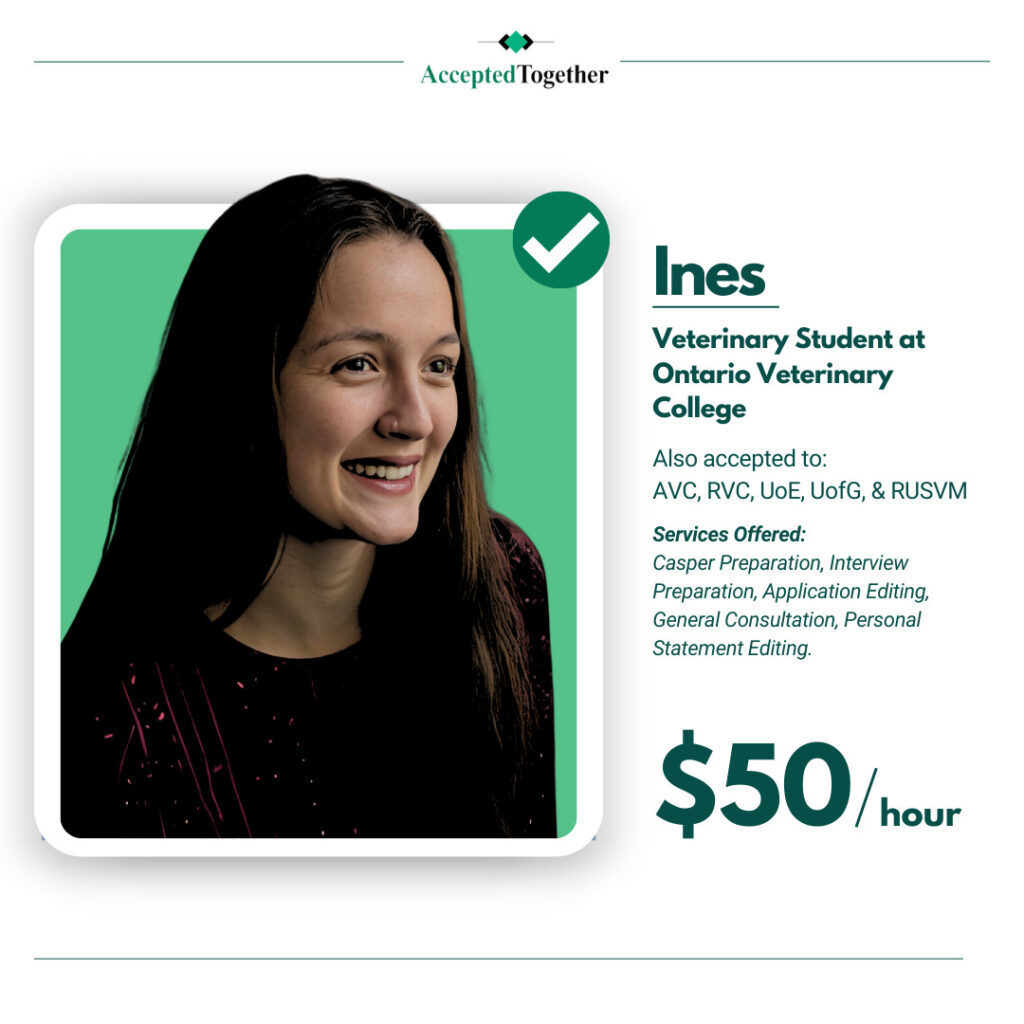
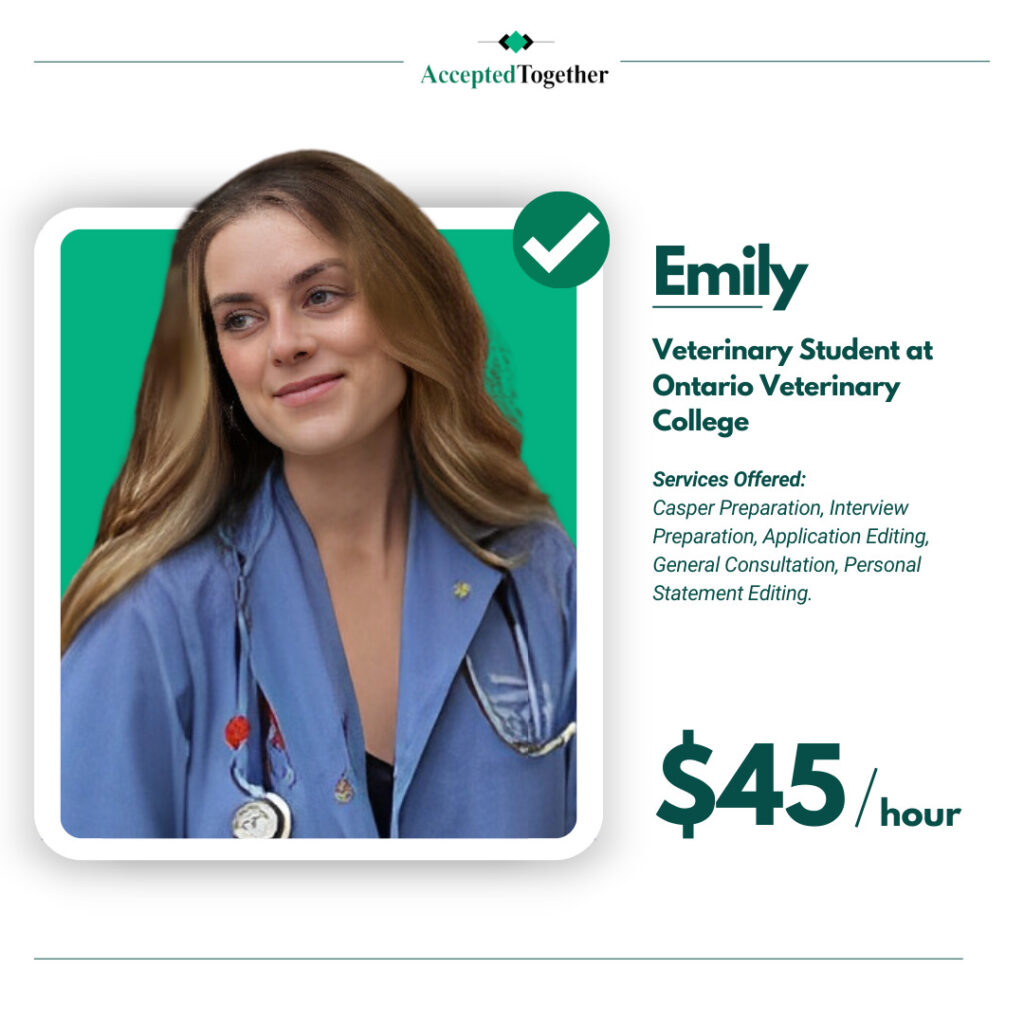
Seek Help In Editing
Editing your own OMSAS ABS can be a challenging task. The input from mentors, peers, or professionals in the field can help identify whether you are clearly explaining your activities and whether something sounds awkward. After investing a significant amount of time and effort into your ABS, it’s easy to overlook errors or areas that require improvement.
These outside perspectives can catch mistakes you may have missed and identify areas where your essay can be strengthened. When seeking assistance, consider approaching medical students who have gone through the application process, mentors with expertise in medical school admissions, friends who have a strong grasp of writing, or even doctors who understand the profession firsthand
Good luck with your OMSAS autobiographical sketch! Let this be the sketch that will land you the interview you deserve.




